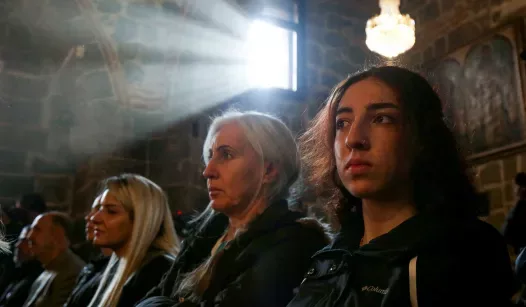Around the world, Christians face severe punishment and persecution for practicing their faith. This troubling trend extends beyond individual suffering; it affects societies as a whole, eroding the fundamental values of freedom and tolerance. The implications of this persecution are profound and far-reaching, impacting not just the victims but also the communities and nations in which they live.
The reality of religious persecution is stark. In various regions, Christians are subjected to violence, discrimination, and even death simply for adhering to their beliefs. Countries like North Korea, Afghanistan, and Somalia consistently rank among the most dangerous places for Christians, where oppressive regimes and extremist groups impose harsh penalties on those who dare to express their faith openly.
The consequences of such persecution are not limited to the immediate harm inflicted upon individuals. When a population is denied the freedom to practice its religion, it stifles diversity and hinders social progress. Societies thrive on pluralism, where multiple beliefs coexist and contribute to a richer cultural tapestry. The persecution of any group diminishes the collective strength and resilience of a society, leading to a climate of fear and repression.
Moreover, the persecution of Christians is often overlooked in broader discussions about human rights. While many advocacy groups focus on various forms of discrimination, the plight of Christians in many parts of the world remains underreported. This lack of awareness can lead to a false sense of security among those living in more tolerant societies, where freedom of religion is taken for granted.
Yet, the situation is not hopeless. Awareness is the first step toward change. By shining a light on the experiences of persecuted Christians, we can foster empathy and understanding. It is crucial for individuals, communities, and governments to recognize the importance of defending religious freedom for all, as it is a cornerstone of democratic values.
Advocacy plays a vital role in addressing these issues. Organizations dedicated to protecting religious freedom work tirelessly to raise awareness, provide support to persecuted individuals, and push for policy changes that safeguard the rights of all believers. Engaging with these organizations, whether through donations, volunteering, or simply amplifying their messages, can contribute to the fight against religious persecution.
Furthermore, dialogue is essential. By engaging in conversations about faith and its role in society, we can break down barriers and foster a culture of respect and understanding. Educational initiatives that promote interfaith dialogue can help dispel misconceptions and encourage solidarity among different religious communities.
In the United States, where freedom of religion is a foundational principle, it is imperative to remain vigilant. The experiences of Christians facing persecution abroad should serve as a reminder of the fragility of these freedoms. Supporting policies that protect religious liberties both domestically and internationally is essential to ensuring that all individuals can practice their faith without fear.
Ultimately, the struggle against the persecution of Christians is a call to action for everyone. It is a shared responsibility to advocate for the rights of all individuals to believe freely and openly. By standing together in solidarity, we can work toward a world where religious freedom is universally respected and upheld, allowing diverse beliefs to flourish and enrich our global community.
